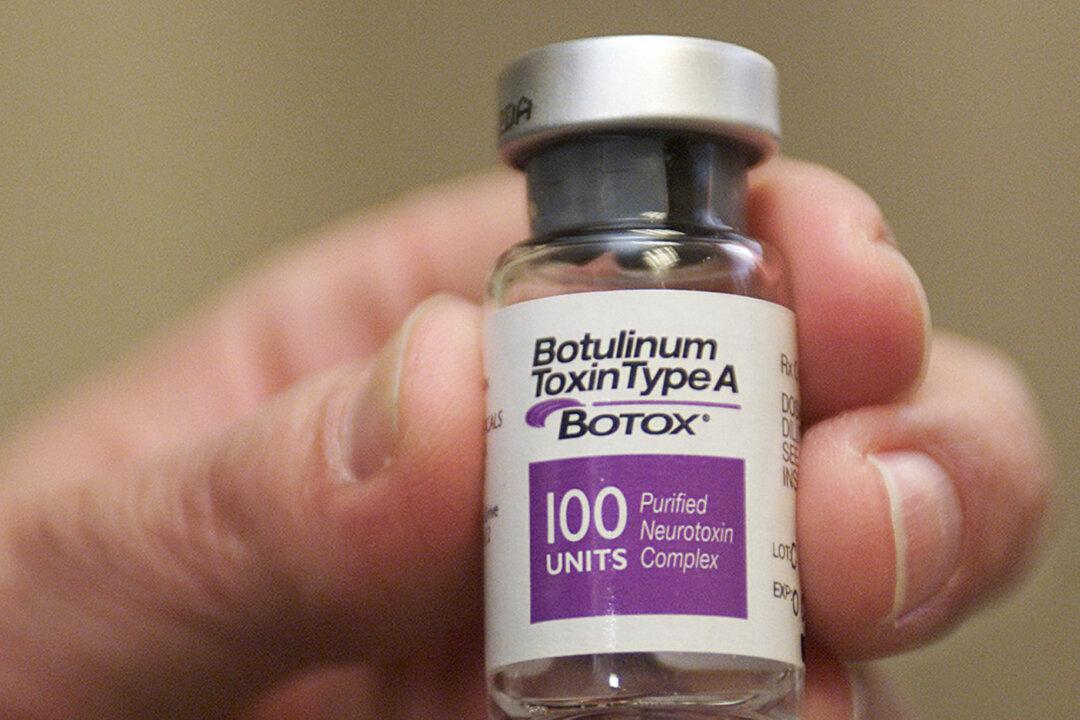At least 19 people in nine states have fallen ill after receiving botulinum toxin injections—commonly known by the brand name Botox—from unlicensed individuals or outside of a health care setting, according to the U.S. Centers for Disease Control and Prevention (CDC).
Some people received injections with counterfeit products or products with unverified sources, the agency said in an April 15 statement. The CDC said an investigation into the sources of these products is underway.





